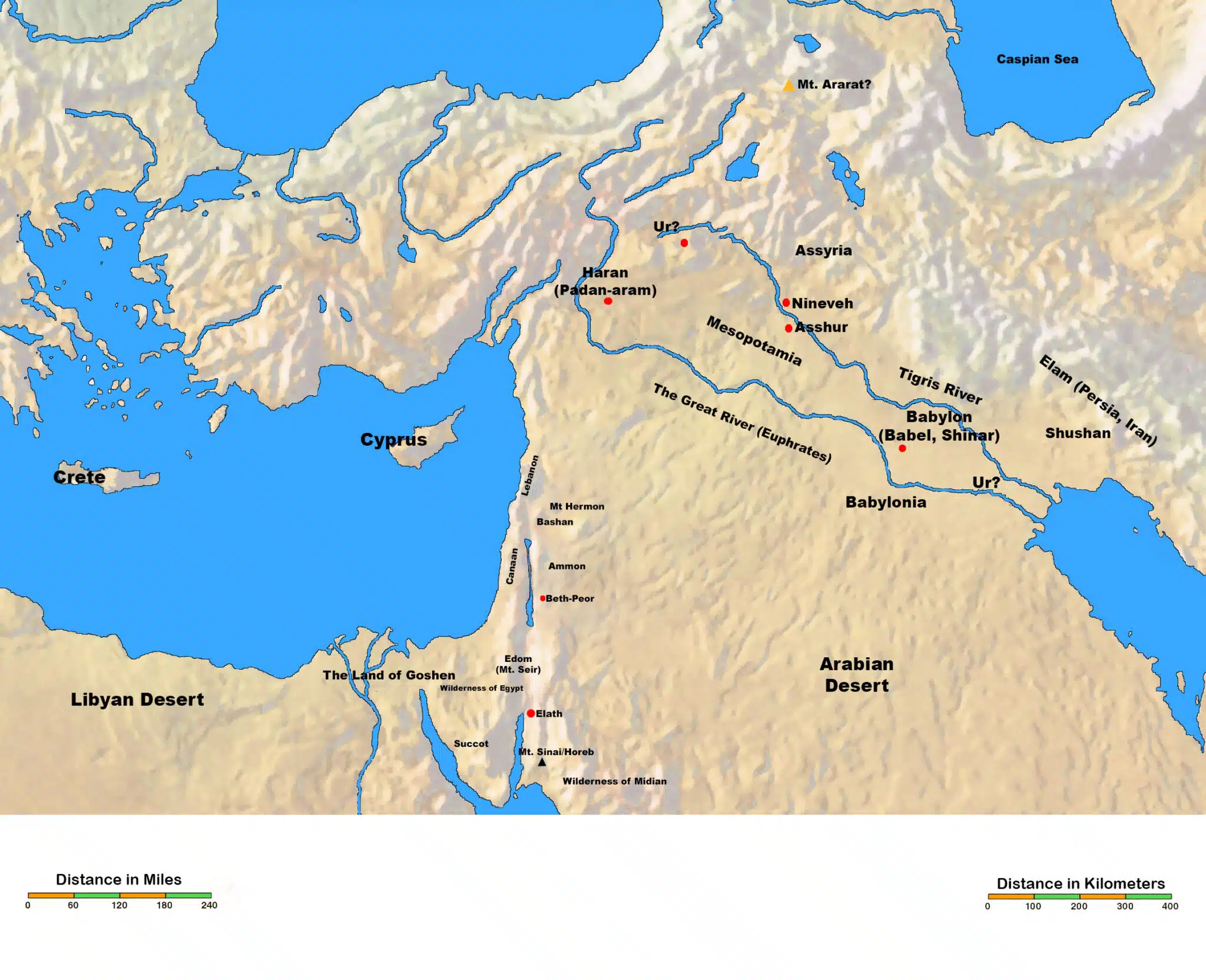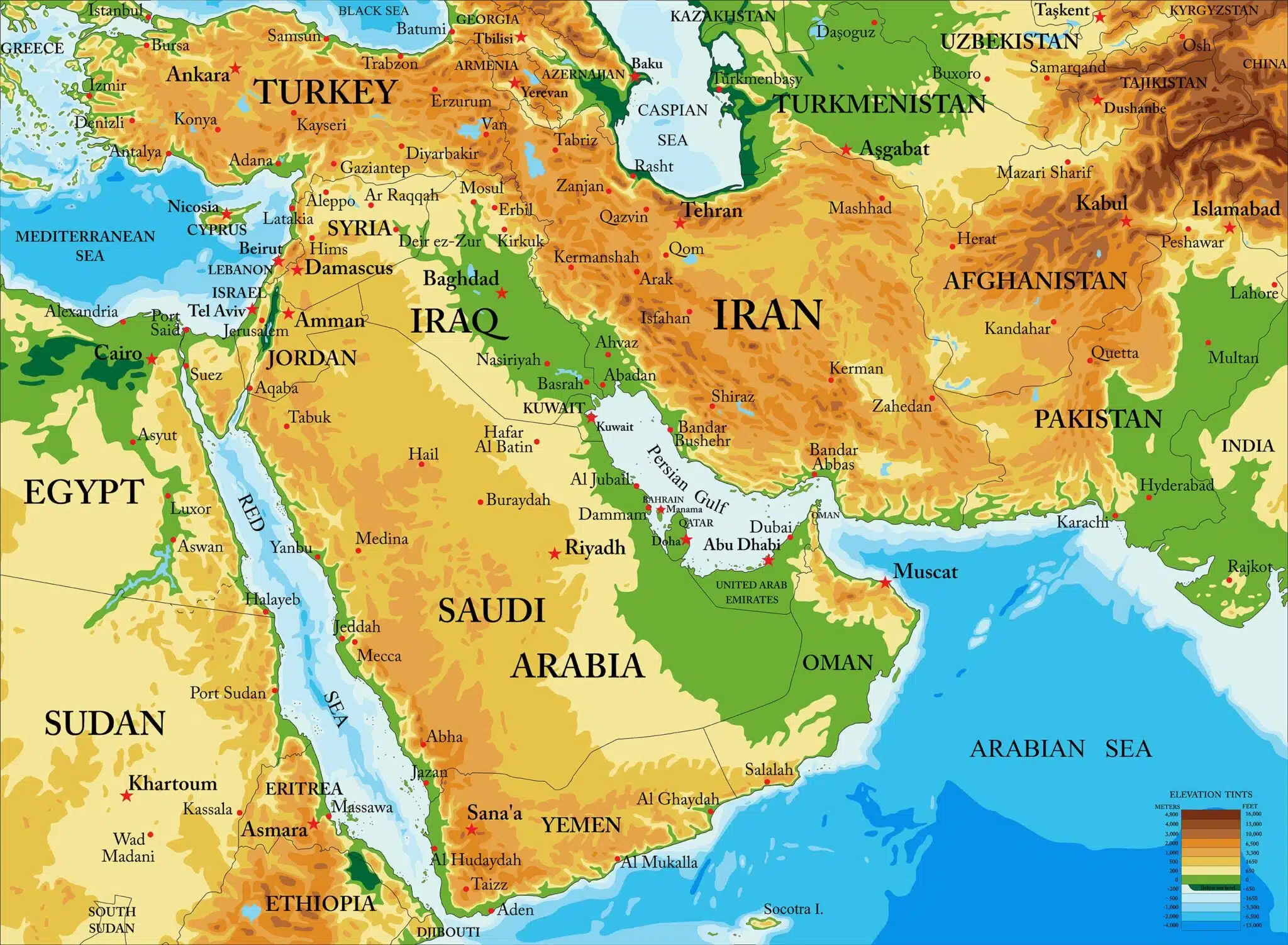Noah’s sons are Shem, Ham, and Japheth. Ham is the father of Canaan. Noah plants a vineyard and becomes drunk. Ham saw the nakedness of his father in a tent. Ham told his two brothers about it. They carefully, so as not to see, covered their naked father in his tent.
All humans, every nation, race, and tribe, are descendants of Shem, Ham, and Japheth and their wives. Noah only had these three sons. Ham is introduced as being the father of Canaan which will become important in a few verses. God’s blessing and command that was given in Genesis 9:1 was fulfilled. In chapter 10 after the tower of Babel, we will see the details of the world branching out from the sons of Noah.
The covenant gave humans the confidence to build communities without fearing another catastrophe by a flood. Otherwise, it is possible people would have stayed on high ground close to an ark for fear of another flood. In verse 20, we find Noah planted a vineyard. Notice some time has passed from the time of the flood at least equivalent to the time to plant a vineyard and for it to yield its grape harvest. Also, Canaan, Ham’s son, was not born until after the flood. The post-flood era seems to begin to establish agricultural life. They are residing in tents (as it is said of Noah he was inside his tent), but because they are planing a vineyard, it seems they are living a settled rather than nomadic life.
Noah was identified as a farmer, a man of the soil (Genesis 4:2;5:29). He was getting a fresh start after the flood. He planted a vineyard and started to practice winemaking. This is the first time that wine is mentioned in the Bible.
Excessive consumption of alcohol is a sin. Drunkenness leaves one vulnerable to acting shamefully or becoming the object of a shameful act. The Bible says wisdom is not being intoxicated. “Wine is a mocker, strong drink a brawler, and whoever is intoxicated by it is not wise” (Proverbs 20:1). However, Noah does not appear to be chastised in the text. It could be that Noah’s previous experience with wine is not longer applicable, and under current conditions alcohol has a different and more pronounced effect.
Ham walked into Noah’s tent and saw the nakedness of his father and told his two brothers outside. In verse 22 an interpretive challenge arises as to the nature of Ham’s offense. Part of the reason is only the barest details are reported here. One view is; Ham saw his father’s drunken nakedness and thought it was humorous. It was not what he saw, but his attitude about it afterward that became an issue. He took delight in telling his brothers about it. Ham showed his lack of modesty and respect by leaving his father uncovered and shamelessly bragging about what he had seen to his brothers.
Another view interprets this event as involving sexual relations. Grammatically, the words “saw the nakedness” in the Old Testament are used of shameful sexual contact and intercourse. In the Law (Leviticus 18; 20) this expression is used to prohibit certain sexual relations. This idiom suggests that Ham’s offense may have been of a sexual nature, either with his father or his mother. Shem and Japheth in honor and respect of their father covered the nakedness of their father.
Whatever happened in the tent, Ham showed poor character through a lack of respect for his father. The text is clear that his actions dishonored his father, something that earned a curse for his generations.
Biblical Text
18 Now the sons of Noah who came out of the ark were Shem and Ham and Japheth; and Ham was the father of Canaan. 19 These three were the sons of Noah, and from these the whole earth was populated. 20 Then Noah began farming and planted a vineyard. 21 He drank of the wine and became drunk, and uncovered himself inside his tent. 22 Ham, the father of Canaan, saw the nakedness of his father, and told his two brothers outside. 23 But Shem and Japheth took a garment and laid it upon both their shoulders and walked backward and covered the nakedness of their father; and their faces were turned away, so that they did not see their father’s nakedness.
Check out our other commentaries:
-
Ecclesiastes 3:14-17 meaning
Solomon declares the cycles of time and circumstance are God’s sovereign handiwork. Since man cannot fully fathom the mysteries of God and because His judgment...... -
Luke 5:33-35 meaning
The Pharisees confront Jesus about why His disciples do not fast and pray (like they and the disciples of John the Baptizer do). ...... -
Colossians 1:28-29 meaning
Paul describes his reason for writing the letter to the Colossians, revealing his desire for both his life/ministry and all of God’s people....... -
Philippians 2:1-4 meaning
Paul tells the Philippians that the best way to help him when they serve Christ is by adopting Jesus’ perspective and by obeying His commands....... -
Romans 9:1-5 meaning
Throughout Romans, Paul has been refuting slanderous charges made by competing Jewish authorities about his gospel message. Paul is deeply sad that Israel, as a......




